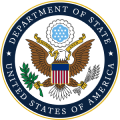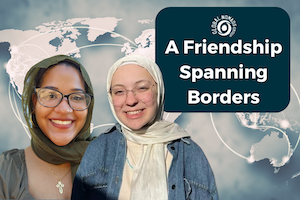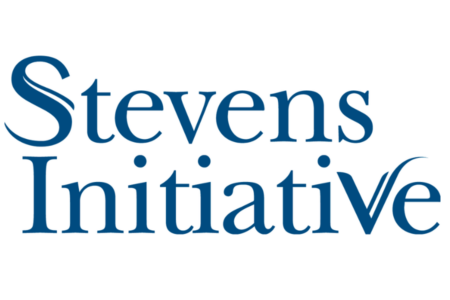“That was one of the things that originally excited me about Global Nomads Group's Student to World video courses that they were accessible, out of the box, and they could learn about peers’ experiences in other countries.”
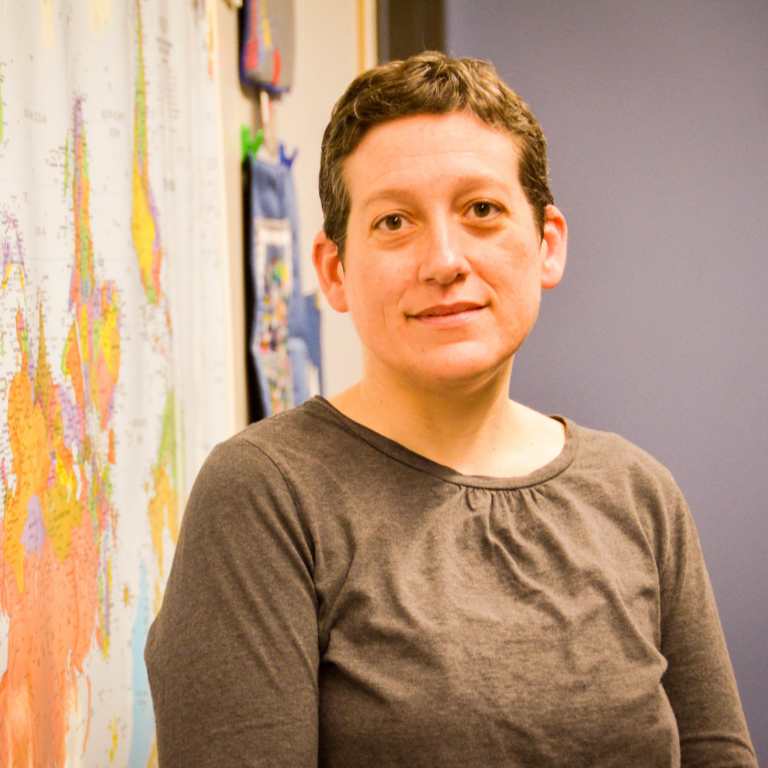
The Metro Deaf School, a bilingual school for Deaf, DeafBlind and Hard of Hearing students in St. Paul, Minnesota, welcomes all students who require Braille, assistive learning technology, or other DeafBlind-specific instruction. Each experience is created with the principles of Universal Design in mind to ensure that all students can learn effectively, beginning with the physical space itself, which is designed to promote communication and foster a sense of inclusivity and comfort.
Teacher Wendy Harris’s classroom, for example, has one wall that is a solid dark color and others that are lighter to enhance contrast when signing, and a U-shaped desk arrangement that allows everyone to see and communicate with one another. Harris herself wears solid, dark colors to help further increase the visual contrast for her students.
In addition to the in-person experience, Harris values giving her students opportunities to connect with their peers worldwide. However, despite participating in many virtual and in-person teacher exchanges, she has found that few student collaboration opportunities are accessible to her students.
Harris is a Teacher Ambassador at Global Nomads Group, where accessibility and inclusion are essential aspects of curriculum design and education. The Student to World Courses that she uses in her classes incorporate these priorities, reflecting global classrooms and ensuring accessibility to everyone. Inclusive education, in turn, aims to provide equal opportunities for learning, growth, and development to all learners, promoting social justice, equity, and diversity to create a more accepting society.
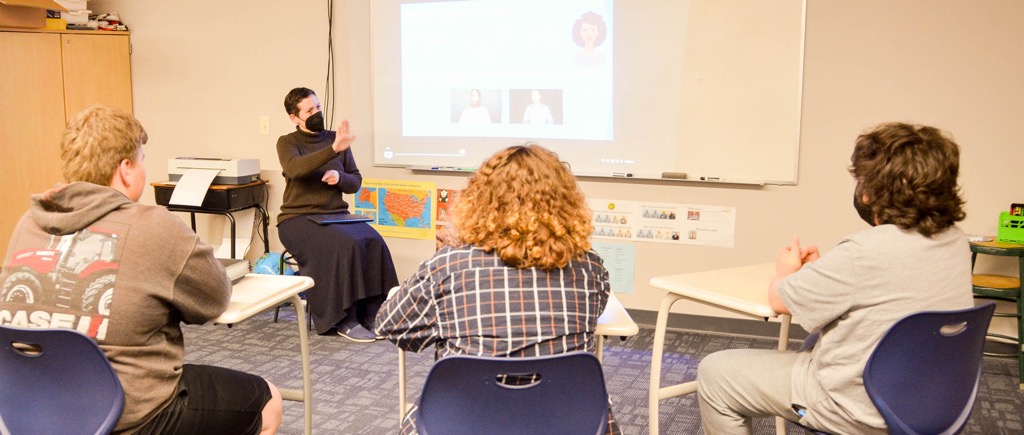
Harris herself has spent almost two decades teaching a diverse range of students and subjects. A native of Connecticut, she completed her undergraduate degree in American Studies with minors in African/African American Studies and Latin American Studies at Carleton College in Minnesota before completing several internships abroad. She later went on to obtain a Masters Degree from the University of California, San Diego in Bilingual Deaf Education and continues her education today in an effort to provide dual enrollment opportunities for her students.
Teaching at small schools gives her the opportunity to work with students for multiple years and in multiple courses where she addresses topics thematically. She also has taught short-term courses in India and China, led professional development in Chile, and presented at conferences both nationally and internationally. Outside the classroom, she has developed curriculum materials for PBS and mentored teachers from around the world to earn a National Geographic Certification.
Harris has taught students from preschool to age twenty-one and believes in educating through an interdisciplinary lens. Her youth-centered teaching style, combined with her unique classroom environment, enables her to integrate alternative curricula such as Student to World Courses.
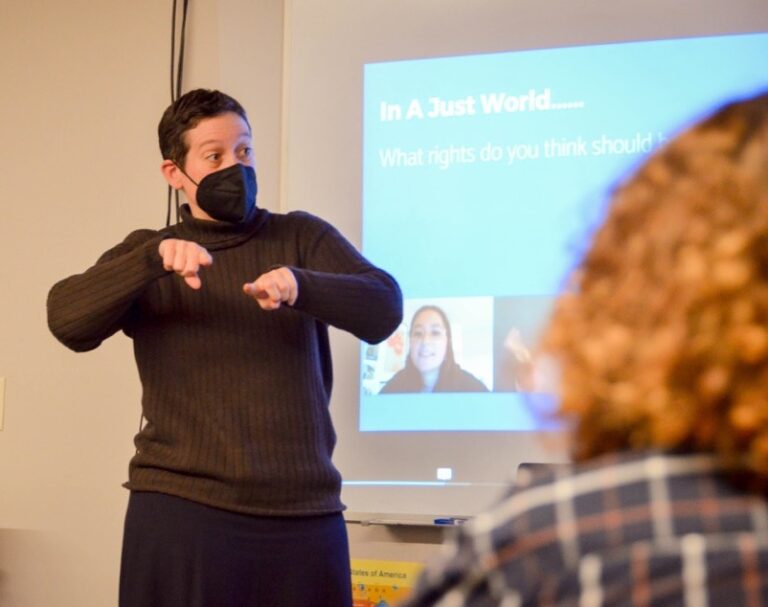
“I work to connect [student experiences and curiosity] to the content I’m expected to teach while also providing students opportunities to engage in their communities through advocacy or other ways.”
Harris prioritizes increasing the global content and social justice focus of her classes, ensuring that her students are exposed to diverse perspectives. By integrating diversity into her lessons, Wendy provides her students with the opportunity to learn more about their communities, families, and themselves, which is particularly important for many of her students who navigate language barriers outside of the classroom. By providing and encouraging different perspectives through the curriculum, Harris allows students to bring their experiences and curiosity to the classroom.
“When I see other people’s experiences, some of them are the same as mine, and I really get it,” says one of Harris’s students.
Harris continues to advocate for equitable, inclusive, and accessible educational practices and resources. This work has led to her participation in competitive professional development programs that include Fulbright Teachers for Global Classrooms, the National History Day Master Teacher program, and numerous seminars and institutes sponsored by the National Endowment for the Humanities. She also received a grant from Teaching Tolerance to improve her anti-bias work related to DeafBlind people as well as another from the Zinn Education Program to start a book group around Teaching for Black Lives.
Harris’s leadership in Global Nomads Group’s Teacher Ambassador Program yields valuable insights that inform the youth-centered curriculum design and help create more impactful educational resources. By working together, educators and organizations can promote social justice, equity, and diversity in education and build a more inclusive and accepting society.
Global Nomads Group’s Student to World program is supported by the Stevens Initiative, which is sponsored by the U.S. Department of State, with funding provided by the U.S. Government, and is administered by the Aspen Institute. The Stevens Initiative is also supported by the Bezos Family Foundation and the governments of Morocco and the United Arab Emirates.

